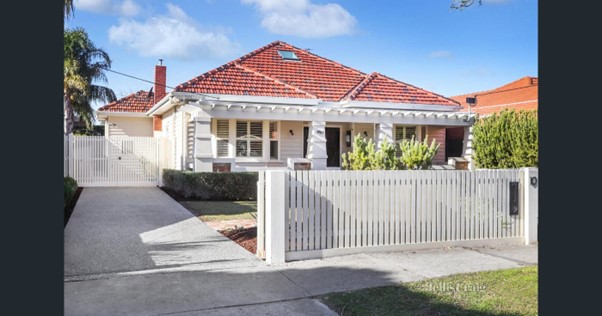It’s too early to call a change in the real estate market, but I’m going to stick my head out regardless because there seems to have been a small shift in sentiment. We’ll see how it tracks in the weeks ahead.
As per the cycle, we’re looking for falls in the median to stabilise before trending upwards once again as we move into 2023. At least outside of Sydney, and particularly in the smaller states and territories by population.
Over the last two weekends, there’s been an increase in energy on the ground.
More people are walking through open homes, attending auctions, and slightly higher clearance rates are being recorded (a leading indicator of changes in the median).
Also, for the first time this year, I witnessed two properties I was monitoring sell for high prices before auction.
One of those offers was so far beyond expectation that the owner didn’t even want the agent to wait to hear back from other interested parties. They wanted to sign the contract immediately in case the buyer changed their mind.
The property is in Melbourne’s outer suburbs.
The outer regions have held up better in this market.
They capture a ripple of buyers that are downsizing their budgets in expectation of further rate rises.
Still, it’s never a good strategy to place offers prior to auction in a falling market.
Even when it’s relevant, there’s a skill to the process to ensure any offer placed is no more than $1–2K above competing offers.
Otherwise, it’s bidding blind.
Throwing a dart at a dartboard.
In this case, the winning bidder paid $70K more than the next highest offer!
That must have stung a little when they found out.
Negotiation is a skill that takes practice to master.
When inexperienced buyers pitch themselves against seasoned real estate agents that know every trick in the book — they usually end up paying far more than they need.
Let’s face it, it really doesn’t matter how good you are at finding great properties. If you don’t have the knowledge to effectively negotiate them, you’ll come unstuck.
On that note, I took a deep dive into the subject of negotiation in my latest podcast with former police detective Steven van Aperen.
Steve has spoken at more than 600-plus conferences and seminars throughout the world, attended by thousands of delegates.
He delivers training programs and one-on-one training to CEOs, government departments, executives, fund managers, analysts, recruiters, sales teams, managers, investigators, the finance sector, media…and many others.
He’s known as ‘Australia’s human lie detector’, but his techniques cover much more than this.
In the interview, we discuss how to develop the ability and skill sets to read people like a book and how to detect deception.
We also discuss the importance of controlling your emotions prior to any negotiation, and how to use these skills to build resilience in everything you do.
You can tune in here:
Back to the market!
The above example wasn’t the only bullish result I witnessed this past week.
Take a look at this beauty:
|
|
| Source: realestate.com.au |
The fully renovated period masterpiece is in the bayside suburb of Newport — 10km southwest of Melbourne’s CBD.
Marketed in the mid-$2 million price range, it sold under solid competition from multiple bidders, rocketing $100K above reserve.
Happy vendor = happy bank.
As mentioned earlier, two weeks doesn’t make for a trend. But I’ve been in the industry long enough to sense when there could be a change afoot.
If we just look at rates alone — current forecasts range from 2.85% from NAB to 3.35% from ANZ by November 2022.
Thereafter, CBA is forecasting interest rate cuts in late 2023.
Westpac and UBS suggest 2024.
If you have knowledge of the real estate cycle — that’s right on time for the final two years to the peak in 2026.
Historically, this is the most bullish phase of the real estate cycle. You can find out more here.
The forces driving inflation are coming from mostly imported goods (petrol, materials) along with weather-related events damaging supply.
Domestically, wage growth is sluggish and consumer confidence is at rock bottom.
Ratcheting up the cash rate has little justification against such trends. The RBA is likely to overshoot.
We’re not looking at a property crash — that’s for sure. There are still plenty of buyers active.
We have almost record-low unemployment along with rapidly increasing residential rents and record-low vacancy rates.
It’s prompted an uptick of interest from yield-seeking investors as finance commitments from this cohort continue to rise.
All in all — if you’re in the market to buy — conditions are still excellent for negotiation. But don’t leave it to long, it doesn’t take much of a switch in supply/demand to lose that competitive advantage.
Sincerely,
 |
Catherine Cashmore,
Editor, Land Cycle Investor



Comments